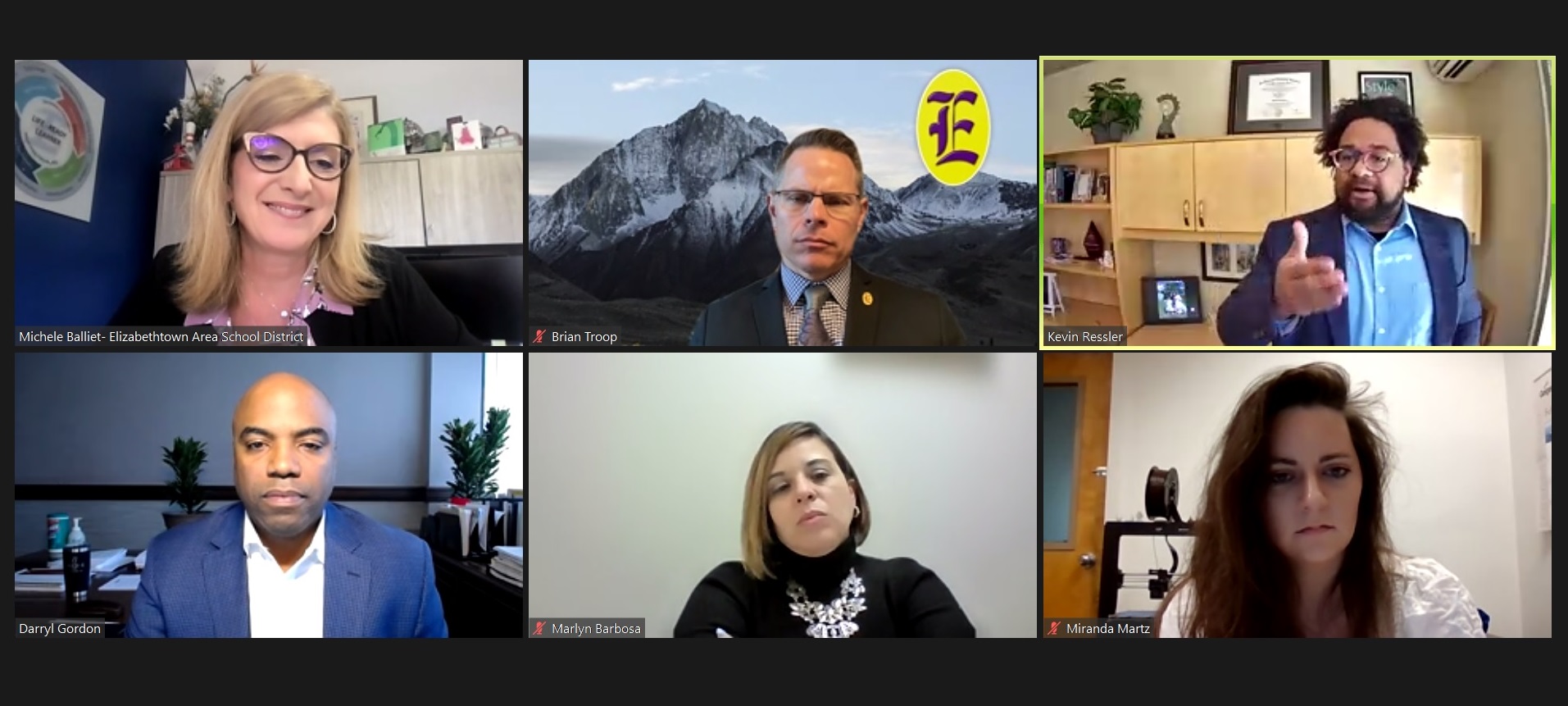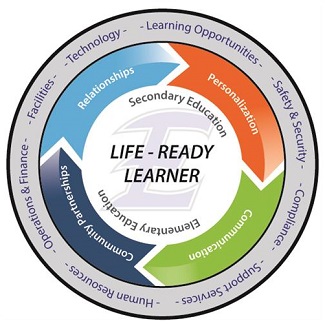
Educators preparing young people to enter the workforce are dealing with an ever-accelerating array of challenges: Evolving demographics, new technologies and economic trends and shifting expectations among prospective employers and employees alike.
"Maybe some of our tried-and-true practices need to be a little more flexible," said Kevin Ressler, President and CEO of United Way of Lancaster County.
Ressler was moderating United Way's "Conversation About OUR Community" on the emerging workforce. Held Friday, it featured the superintendents of the Elizabethtown Area and Ephrata Area school districts, a human resources professional and two leaders in technical skills training.
Locally and nationally, unemployment is low and companies are struggling to hire qualified workers. A significant share of the "Great Resignation" consists of older workers taking early retirement. What will it take to bring newer generations into those roles?
For high school students, it starts with a viable plan for life after graduation, said Michele Balliet, Elizabethtown Area's superintendent.

The district launched its "Life-Ready Learner" model after realizing a large percentage of its graduating students lacked such a plan, she said. Many were opting for college by default, then dropping out after a year or so, often incurring heavy student debt in the process.
Life-Ready Learner is a "mindset," the district says. It integrates academics, life skills and social and emotional learning along three platforms, or pathways to adult life: A school-to-work track, a track for students seeking certifications up to a two-year degree, and a college-prep track.
Balliet said the district's approach incorporates the lessons of "What School Could Be" by entrepreneur Ted Dintersmith; and "The Leader in Me," an education philosophy developed by Stephen Covey of "The 7 Habits of Highly Effective People" fame.
Marlyn Barbosa is director of Tec Centro, a bilingual training program operated by Lancaster's Spanish American Civic Association, while Miranda Martz is pre-apprenticeship coordinator for the York-based Manufacturers Association.
Both organizations offer a robust array of training options geared toward helping non-traditional students obtain family-sustaining employment at low cost. In particular, paid apprenticeships can be attractive options for students who can't afford college or want to avoid the risk of debt, Ressler noted. Both also offer partnerships with HACC and Thaddeus Stevens College of Technology that allow students to matriculate into a two year degree program.
The average age of Tec Centro students is 35, Barbosa said. Its career navigators double as case managers, helping students access English classes, childcare and other services they might need to achieve stability.
Martz said she went through a manufacturing apprenticeship herself and found it empowering. In the classes she teaches, she said, she strives to instill confidence in students from marginalized groups.
"Show them your skills," she said she tells them. "You can do what you want just by showing who you are."
Career Ready Lancaster
Panelists in Friday's "Conversation About OUR Community" directed the audience to Career Ready Lancaster, which is both a website and a partnership focused on helping students and job seekers navigate their options.
 "We link people with careers, said Michele Balliet, Elizabethown Area School District's superintendent. She is on the organization's advisory council, as is fellow panelist Brian Troop, Ephrata Area School District superintendent.
"We link people with careers, said Michele Balliet, Elizabethown Area School District's superintendent. She is on the organization's advisory council, as is fellow panelist Brian Troop, Ephrata Area School District superintendent.
Career Ready Lancaster is a made up of numerous organizations in business, education and the nonprofit sector. United Way of Lancaster County has representation on its steering committee and assists with marketing.
In February, the Lancaster County Workforce Development Board received a $150,000 grant through the Pennsylvania Department of Labor & Industry to expand Career Ready Lancaster and develop its three-year sustainability and strategic plan.
The work includes supporting a pre-apprenticeship program hosted by the Manufacturers Association.
The Career Ready Lancaster website is free and open to all, and contains "a wealth of information," Balliet said.
"We hope to continue growing this resource and keep developing it," she said.
Darryl Gordon, Vice President of Human Resources and Equal Employment Opportunities Officer at the High Cos., described the work involved in recruiting and retaining a diverse workforce as "a very challenging paradox."
"We all know ... it's just better when you have diverse populations working together," he said. But convincing non-White professionals to give Lancaster County a try can be a hard sell, he said: They're reluctant to leave their existing networks and are unsure if they'll be comfortable here. Overcoming those hurdles is tough, he said.
Brian Troop, the superintendent of Ephrata Area School District, said education has become more personalized over the past 15 years or so as educators learn more about the root causes of student behavior. Schools want every student to feel as though they belong, he said.
At Elizabethtown Area, that includes making sure LGBTQ+ students have safe spaces where they can be themselves, Balliet said. The district regularly conducts surveys among all students asking whether they feel heard and understood.
"We have a moral obligation to serve all students," she said. "... We don't get to select."
Troop said there's a "shorter window" than there used to be to make topics relevant to today's students. But when pupils have agency, and a lesson finds that "sweet spot" where it overlaps with a student's own interests, "they'll go bananas," he said.
The panelists emphasized the importance of overcoming bias, whether conscious or unconscious, fostering mutual understanding and respecting other communities' cultural and religious traditions.
Targeting unconscious bias is a strategic action item for the High Cos. this year, Gordon said.
Young employees tend to be familiar with the latest technology and eager to use it, he said, and sometimes have to be advised to weigh the cost against the benefit. They are less willing than older generations to put in overtime, too, he said: "They have a much different perspective on work-life balance, which is great, but there are some times when you just have to do what you have to do."
Balliet cited a quote by educator A.J. Juliani: "Our job as leaders, teachers and parents is not to prepare kids for something, our job is to help kids prepare themselves for anything."





